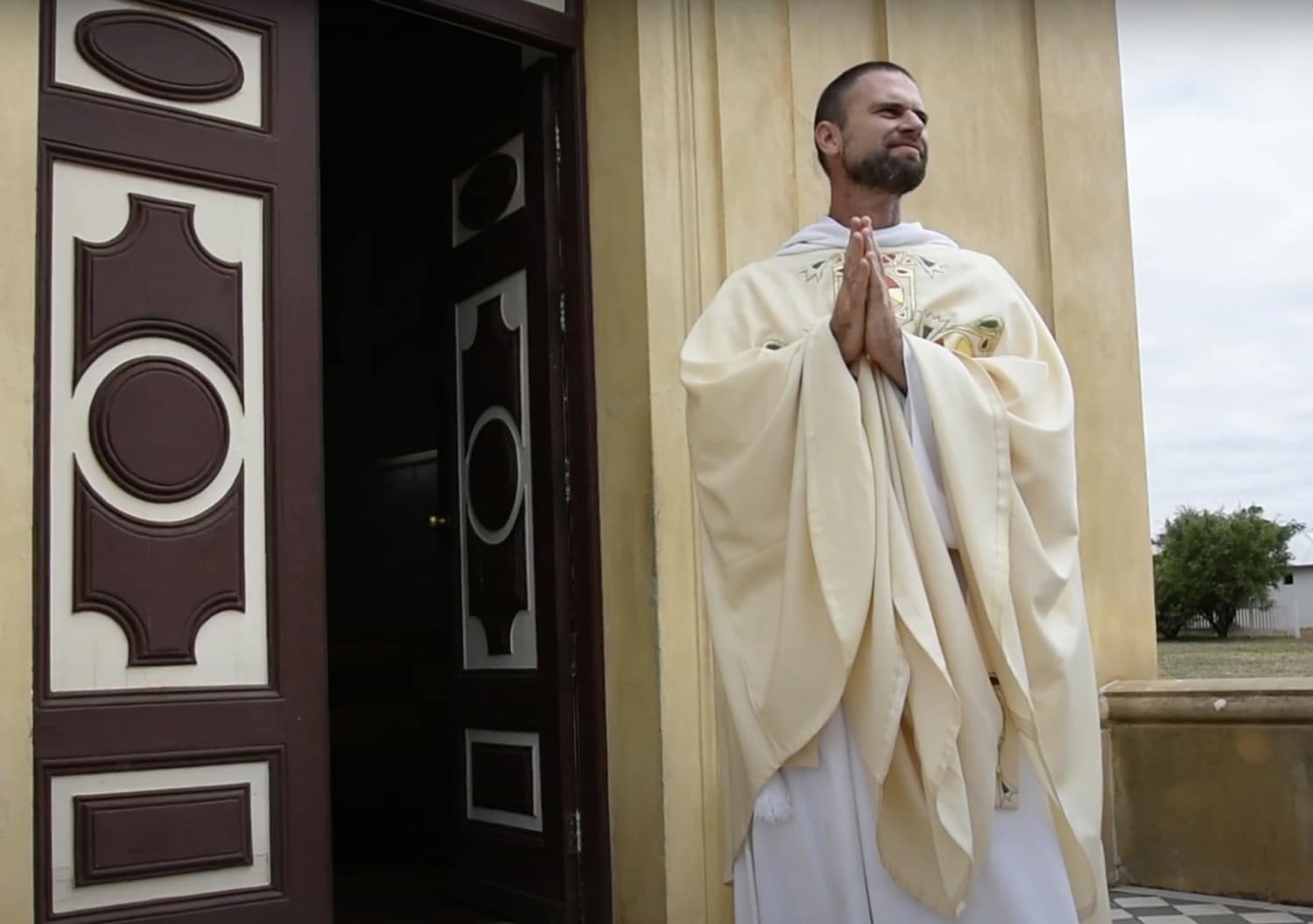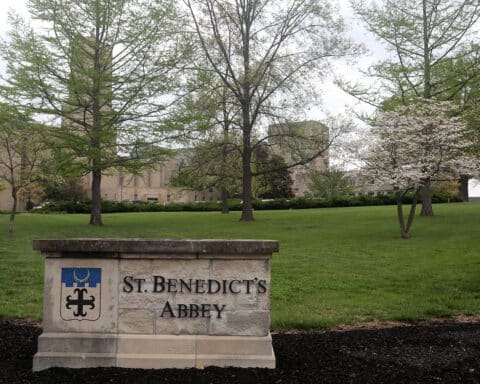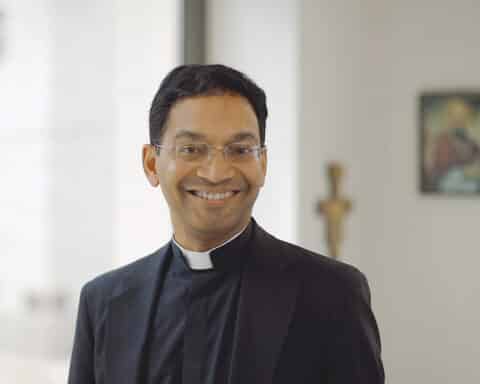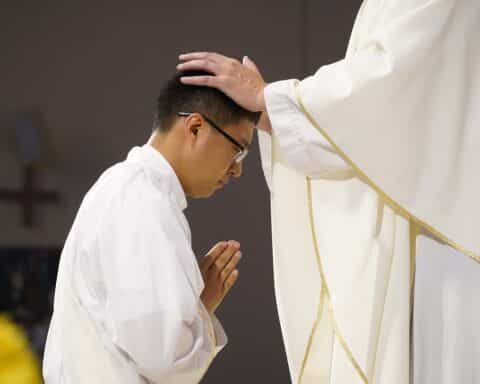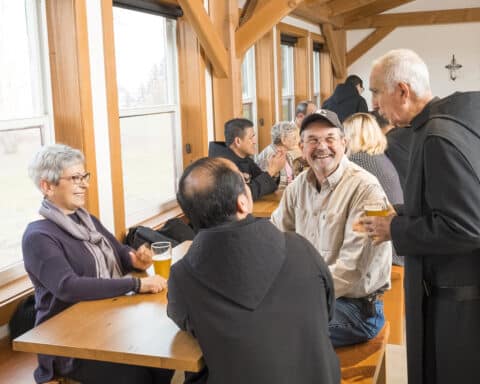Father Robert Nixon, OSB, is a monk of the Abbey of The Most Holy Trinity in New Norcia, Western Australia. After a successful career as an educator, musician and composer, Father Nixon joined the Benedictine order. He is the translator of the Resurrection Series published by Tan Books.
Our Sunday Visitor: You grew up in a Catholic family. How did your parents and your family culture influence your vocation?
Father Robert Nixon, OSB: My family background and attending Catholic schools gave me a very solid foundation in the Catholic faith. I had a very sound understanding of the Faith from a pretty young age. It was always been something that has been in my blood, the Catholic faith. Even when I went through stages of not being quite so interested in a religious life, it was always there with me.
I think that’s the important thing about the Catholic faith. It’s something, which is imparted to a person and which colors their whole outlook on life. It becomes part of who we are, how we live and how we view the world.
Our Sunday Visitor: When did you know that you had a vocation to the priesthood?
Father Nixon: I actually realized I had a vocation to religious life when I was very young, in late primary school. I would like to go and spend time praying in the church. I was fascinated by the Mass. I didn’t act on that vocation immediately when I left school. I had a great passion for music, and I wanted to pursue a career as a musician.
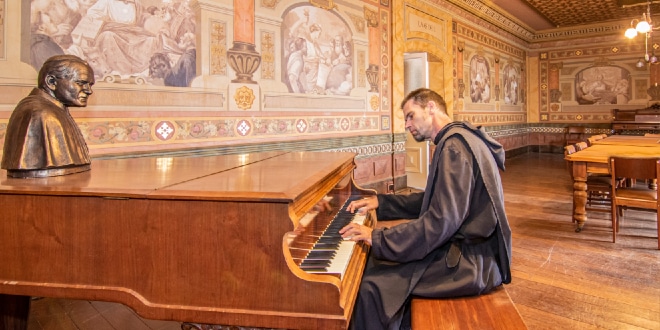
Our Sunday Visitor: You entered the seminary at age 33. How do you feel that your life experience and careers have influenced your priesthood?
Father Nixon: It’s given me a lot of experience in understanding others. If a person entered the seminary straight out of school, they wouldn’t have encountered these difficulties of money, jobs, girlfriends, all the things that are the substance of a lot of people’s lives. I have insight into those.
I also think my experience as a performer, as a musician, and as a teacher comes in handy as a priest. They’re based on communication, which is such an important part of priestly ministry.
Our Sunday Visitor: You began your journey to the priesthood in the diocesan seminary in New South Wales, but were ordained a Benedictine in Western Australia on the opposite coast. How did that happen?
Father Nixon: A seminary actually works a little bit like a monastery. I liked that. I was drawn to a type of spirituality that was somewhat austere by diocesan priest standards. The life of a monk with its regularity and emphasis on reflection and meditation really attracted me. I visited a monastery for a retreat and really loved it.
I felt called to join straight away but was in conflict because I had a great deal of loyalty to my home diocese, as well. They hadn’t had an ordination there for about 20 years. Eventually, I talked to my bishop about it and saw that this was really what God was calling me to.
Our Sunday Visitor: You just touched on something important, which is that Australia is facing a decline in ordinations. Is there hope for growth? Twenty years is a long time for a diocese to wait for a new priest.
Father Nixon: It is. It is. It’s very difficult to predict the future with regard to vocations. I’m hopeful and I’m confident that God will work and that the vocations will come back. But I think it depends upon so many things — leadership, culture, etc. The Church is always in a process of growth, becoming more perfectly what Christ envisions her to be.
Our Sunday Visitor: When you joined the Benedictine order, what about monastic life surprised you?
Father Nixon: One of the things that surprised me about monastic life is the number of people that we actually minister to. Monastic life is traditionally characterized as being enclosed and separated from the world. But in fact, we have a continuous stream of visitors coming here. The pastoral aspect [of the priesthood], which I was drawn to, is also present within monastic life. At the same time, we have the benefits of the contemplative life.
Our Sunday Visitor: As a Benedictine, you take three vows — stability, fidelity to monastic life (or conversion of life) and obedience. Can you talk a little bit about what those vows look like lived out in your own life?
Father Nixon: Stability means that you’re making a lifelong commitment to the particular community you join. So unlike the Franciscans and Jesuits, we can’t be transferred to other parts of the world. We expect to stay exactly where we are. That’s very important because it means you learn to live with whatever community you are a part of, and you’re not just waiting until you get your next transfer or other people get transferred away.
The second one, fidelity and conversion of life, includes poverty, chastity and obedience, of course, is similar to mendicant orders.
Finally, obedience is not only to our superior in the community but is also mutual obedience. If we’re asked to help someone, to do something for someone within the community, we do it. We’re all serving each other.
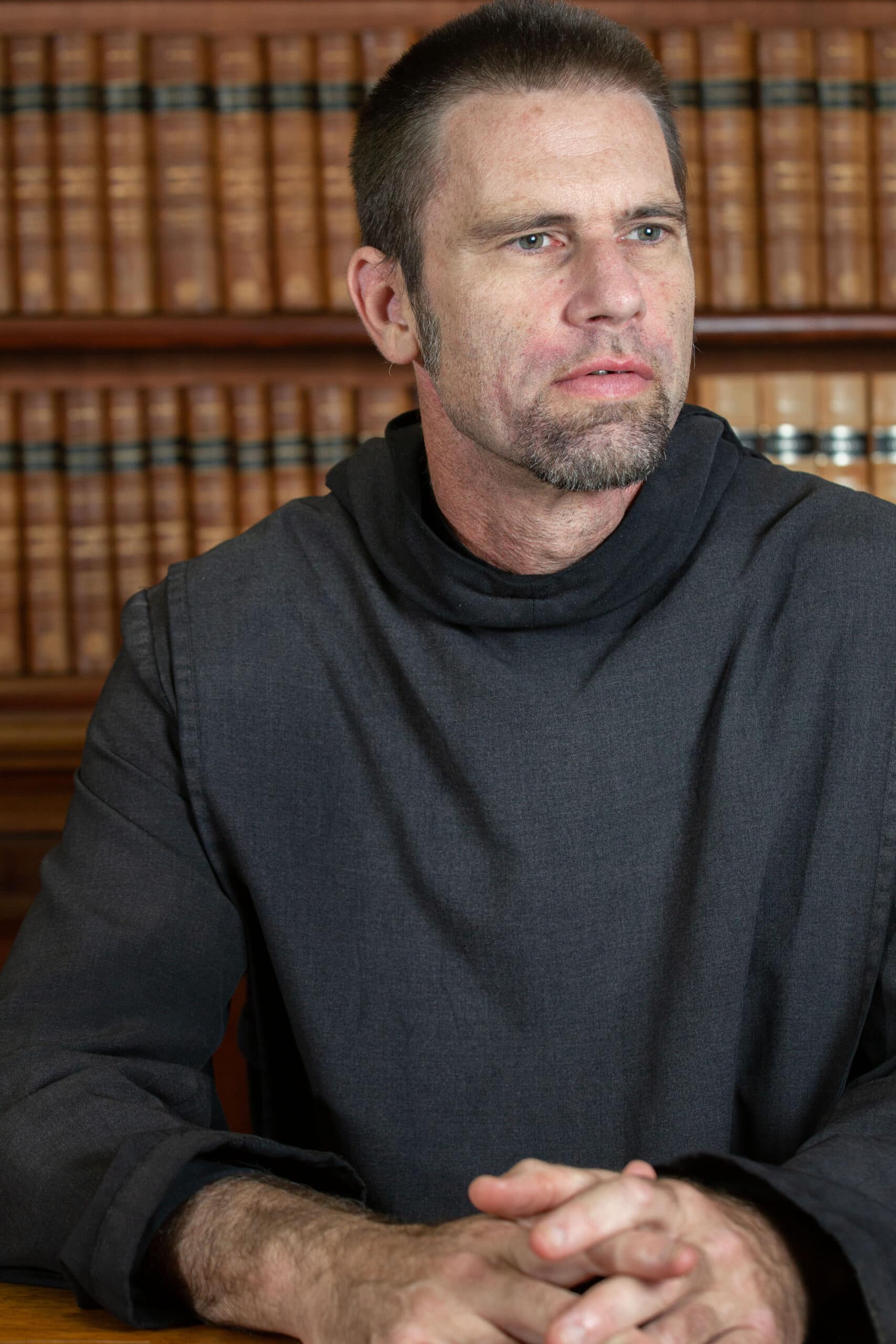
Our Sunday Visitor: We’ve touched on this a little bit, but prior to entering the Benedictine order, you were an accomplished musician, composer and educator. Today you are the director of the Institute of Benedictine Studies at New Norcia and are still composing and recording music. Do you have any words of encouragement for young men who are discerning a vocation, but who might be worried that entering the seminary means giving up other passions?
Father Nixon: It definitely doesn’t mean giving up other passions and other talents. Sometimes, it might involve putting something off for a few years as part of obedience and discipline, but ultimately, our life in the Church is one of fullness of life.
I find that I’m able to do [things I thought I was saying goodbye to] now for the glory of God, which makes so much of a difference. If you’re doing something just because you enjoy it, it isn’t as fulfilling as if you are putting it to the service of God and the Church.
Our Sunday Visitor: And it was at New Norcia that you discovered a new passion, translating ancient and medieval Latin manuscripts into modern English. How did you get started with that?
Father Nixon: Latin was actually one of my favorite subjects in the seminary, and I actually like to translate things while I’m reading them. I did one work by St. Idlephonsus of Toledo, and, just by chance, I shared it with some other people who said, you should publish this. I sent it off to Tan Books. I was quite surprised that they were enthusiastic about it because this was an obscure seventh-century monastic saint that most people had never heard of.
Our Sunday Visitor: I’m curious as to how are you choosing which to translate. New Norcia has over 80,000 books in its library. That’s a lot to pick from.
Father Nixon: That’s right. If something really strikes me when I’m reading it, then I think it’ll probably strike other people, as well. I’ve been extremely encouraged by the enthusiasm among Catholics for reading these writings, which have been lost for so many centuries.
Our Sunday Visitor: You have a book coming out called “The Battle of Virtues and Vices” (TAN Books, $19.95). How did you choose that one and what do you think it will bring to the Church today?
Father Nixon: “The Battle of the Virtues and Vices” was one of the most popular books during the Middle Ages. It’s written in the form of a dialogue between the vices and the virtues. What happens is a character is one of the vices pops up and tries to tempt the person, and then one of the virtues pops up and refutes the vice. It’s entertaining, as well as edifying because it equips us to recognize these vices when they disguise themselves.
Our Sunday Visitor: I want to close by looping back to the subject of vocations. As a mom, I’d like to know what words of encouragement or advice do you have for me and other parents who are hoping to foster an openness to vocations in our families.
Father Nixon: The important thing is to keep that connection with the Church very strong, to make it a part of daily life, a normal thing. If you give that foundation, I think that’s the very best thing parents can do.
Often, when they’re growing up, kids will have different stages. They’ll sometimes drift away from the Church or lose interest. But if the foundation is there, they will be ready to come back to respond to God.
I know being a Catholic parent is a very difficult thing in this day and age, but the foundation of love and faith and of doing what’s right will always be there. It will stay with the person throughout their life and equip them for whatever vocation God is calling them to.

